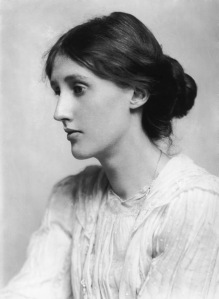Wow, guys! It’s been months since I’ve made a post here. And yes I’m kind of irritated and ashamed at myself for that. Especially since I had intended to be more regular about these Attunement’s than that.
My last entry was in March! That is nearly 4 months ago!
Well, I’m going to be honest with you about what kept me away from this blog for four months. I’ve kept myself away from this blog. That is to say I haven’t had as much courage and faith in myself over the last four months. And I have realized I have gotten wrapped up too much and what I was afraid of the people were “thinking” about me.
Hence the reference to the Invisible Audience! In other words, a lot of us will stop doing what we are doing, stop offering and sharing our wisdom, or simply being ourselves because we feel that people – or that the people gathered “out there” – society are having something to say about what we create. That in some ways we feel or fear possible judgment on what we have been creating, or are even considering creating.
In fact, I, and probably a lot of you reading this, have often scared ourselves/myself with the very IDEA of what someone might THINK or SAY about our creation, our creative process or what’s important to us in what we create. And indeed in most other areas of our life.
But that’s the problem with the Invisible Audience. It’s there, and it isn’t. Simultaneously we have the energy of the “audience” those individuals out in the world who will be or are affected by what we have spent our hours working on, and yet, we also simultaneously really have no one that is “physically” there to really pass these sorts of judgments or other comments that we may be psyching ourselves up for.
So in effect we scare ourselves and not showing up, and all because of something that isn’t really there in the way we think it is.
I have realized that some of my trouble with the Invisible Audience is actually a reflection of what is going on within me as a writer, creative and visionary individual. That there is actually no judgment coming from the outside, and it is all coming from the inside, as if to “beat everyone else to it” so that if someone WERE to say something to me, that it wouldn’t matter because I would have already been myself up over it.
So that’s what the difficulty is in all of this. Is that in some sense there are other people out there besides us, who are not us, and who may not even really be paying attention to us as we are creating, and yet they are us. They are a reflection. So it’s important to pay attention when this feeling occurs, as it will point us to when we are being too critical with ourselves
So in the spirit of injecting some comedy into a situation that I’ve been dealing with with the myself for a couple of months, I have just decided that if I’m going to have an Invisible Audience, I might as well do something to entertain them! 😉
But I’ve also realize there is another way we can look at this. We can use the idea of the Invisible Audience as a way to encourage us to write, rather than deter us. And it’s a simple switch in perspective really. Here’s all you have to do to make. Invisible Audience works to uplift you, rather than bring you down:
Imagine that the Invisible Audience is made up of the souls (people, energy, organizations etc.) that are waiting to experience you as an author. That are waiting to be positively affected as a result of your art, rather than the other way around.
Imagine that your Invisible Audience is made up of the people who made an agreement with you on a soul level to be connected to you through your art. To support you and cheer you on, as much as you for them.
Imagine that you are Invisible Audience is made up of those people who need your story! Who need its particular message. After all creativity is a form of medicine for yourself as well as for others, so whenever you feel like you’re being “watched” or that you have this audience around you, instead of feeling like they might be waiting bust your knee caps with a lead pipe, imagine that they are waiting to lift you up instead.
Over the next two weeks, take some time to ask yourself,
Who is in my Invisible Audience? What kind of people, energies organizations are there?
Why do they need to hear from me? What do they need to hear from me?
What is so important to them and me about what I’m writing? How is this going to positively affect the people in my Invisible Audience and beyond?
How might the “people” in my Invisible Audience like to support me in continuing to move forward with my creative, inspired writing?
If you ask these questions, you will get answers. What you do with those answers then is up to you. If you have the choice between making nothing out of them, and making magic, wouldn’t you choose magic?








